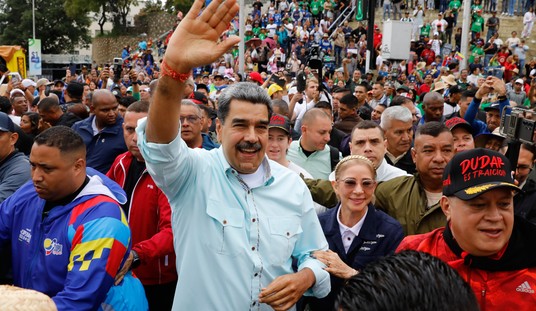No judgment here. I remember a lot of long, bleak nights in 2010 spent trying to talk myself into believing that the GOP would never nominate a candidate whose state health-care initiative paved the way for ObamaCare. Sure, he was next in line and would outspend all his opponents and had a business resume that might prove attractive in a battered economy. But there were lots of ways to stop him. Weren’t there?
If Hillary wants the nomination, nothing’s going to stop her. And the worse Obama’s second term gets, the fewer Democrats there’ll be who are willing to forfeit her electoral advantages in order to roll the dice on a purer liberal like Elizabeth Warren with one-tenth the name recognition of the Clintons and one-thousandth the fundraising potential. There’s a cold calculation coming, just as there was for Romney: At the end of the day, who’s most likely to help us win power? Lay aside what he or she might do with that power. At a bare minimum, no matter how bad it gets, at least we’ll be keeping the ball away from the other team.
They’ll come around. Kubler-Ross is a process, after all. But for now, we’re in the early stages. Via Mediaite, watch below as Krystal Ball wonders whether Hillary should skip 2016 because she’s not blue-collar enough. I’m thinking union members will be okay with her, especially once she starts pandering on income inequality Warren-style and especially if her opponent’s Scott Walker. Or read this from National Journal, lamenting that Hillary’s sucking up political oxygen that rightfully belongs to the party’s up-and-comers. Question: Should the most formidable Democratic candidate in America step aside so that no-name losers like Martin O’Malley can take their rightful place at the head of the crowd?
By 2016, it will have been eight years since Democrats have had a contested primary, and if Clinton is effectively anointed the nominee and wins the presidency (still two big ifs), it will have been 16 years by the 2024 cycle. That’s a long time without the incubation chamber for national leaders that primaries provide. A run, or even the anticipation thereof, draws media attention and voters’ interest, boosting the potential candidate’s national profile.
Republicans have developed a farm team of up-and-coming elected officials considering presidential bids. Just look at leaders in their 40s who, if not candidates themselves, can at least serve as national surrogates for the party. In the Congress there’s Sens. Marco Rubio of Florida and Ted Cruz of Texas, along with 2012 vice-presidential nominee Paul Ryan. In the statehouses, there’s Wisconsin Gov. Scott Walker, Louisiana Gov. Bobby Jindal, and Ohio Gov. John Kasich. Most have positioned themselves as part of a new generation of reformers.
The story is very different for Democrats. There are just two well-known potential 2016 candidates in their 40s: New York Sen. Kirsten Gillibrand and New Jersey Sen. Cory Booker. Ask Democratic strategists for examples of other younger up-and-comers, and you’ll hear names like Julian and Joaquin Castro, the congressman and San Antonio mayor, respectively. And California Attorney General Kamala Harris is always touted, despite her limited political experience.
That’s not only the fault of Clinton’s shadow. The 2010 Republican wave wiped out many Democratic officeholders, including many governors, which are traditionally the primary pool of presidential contenders.
Kirsten Gillibrand versus Scott Walker? I’ll take those odds. Hillary and Bill Clinton versus Scott Walker? I’m less eager to bet. Besides, if lefties are worried about their ticket being insufficiently diverse (with the would-be first woman president at the top of the ticket?), they can take comfort in the fact that Cory Booker’s almost certainly going to be their VP nominee. Doesn’t matter who they end up nominating for president. Democrats are deathly afraid that increased turnout among minority voters for Obama’s two elections will dissipate once he’s out of politics. If the “Obama coalition” falls apart, they’re in trouble — although Hillary, probably uniquely among Dems, might be able to make up the shortfall with increased support from women. Regardless, Booker, who’ll have spent roughly as much time in the Senate by 2016 as Obama had in 2008, is one way to hedge against that.
Exit question: How soon will it be before lefties seize on Hillary’s ruthlessness as a new reason to block her? Bridgegate is an easy peg for a pretext like that. E.g., “How can we criticize Chris Christie for bullying when we’re poised to re-nominate a couple who keep an enemies’ list?” Needless to say, the nanosecond her nomination is assured, they’ll get over it.
Visit NBCNews.com for breaking news, world news, and news about the economy







Join the conversation as a VIP Member